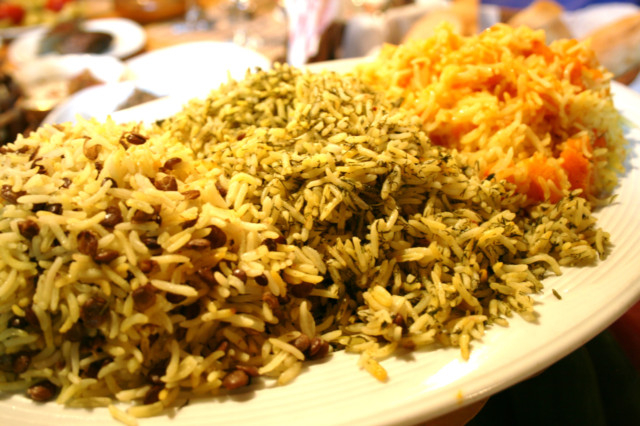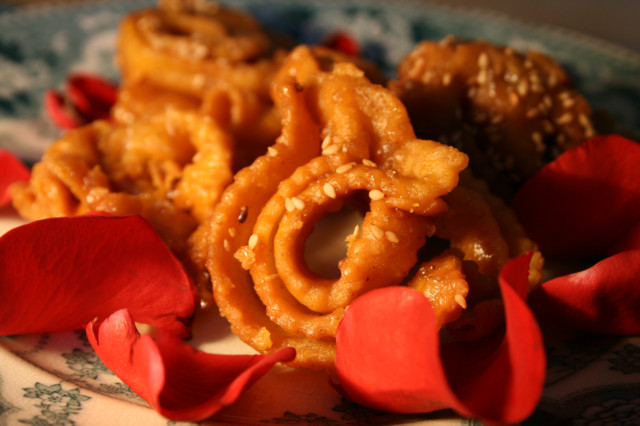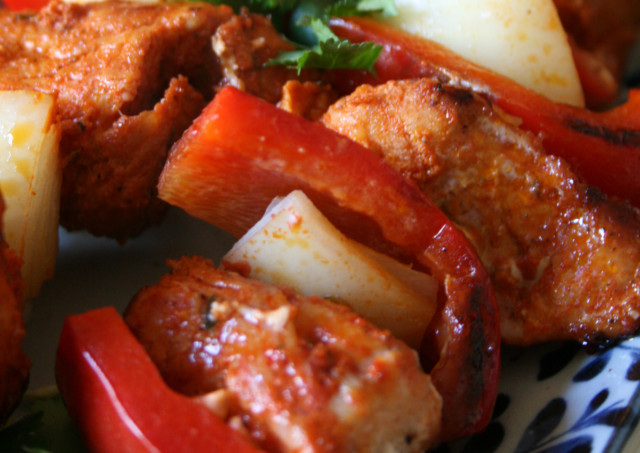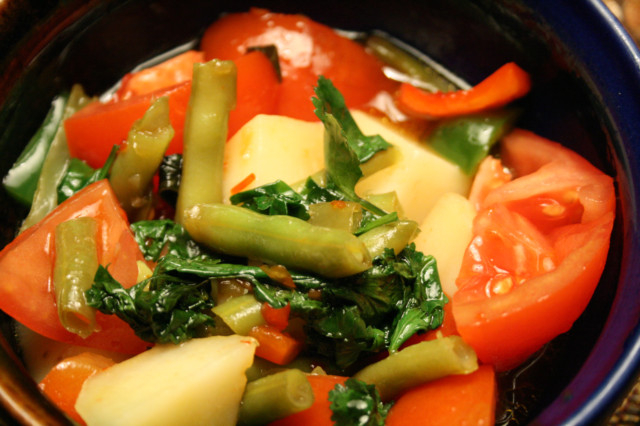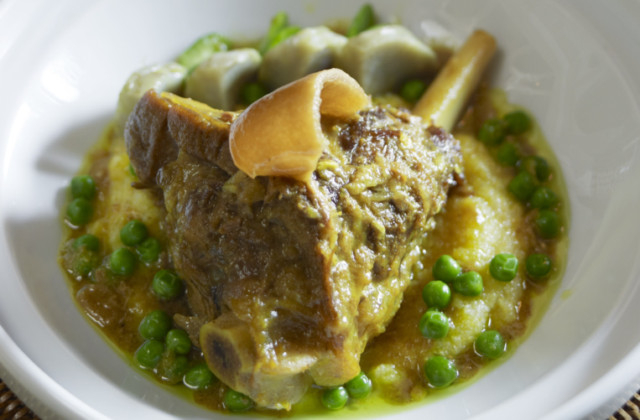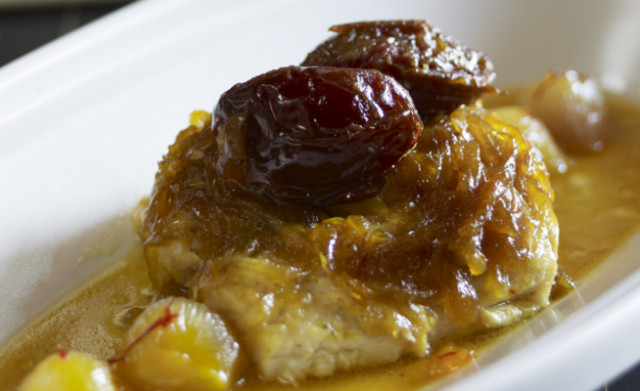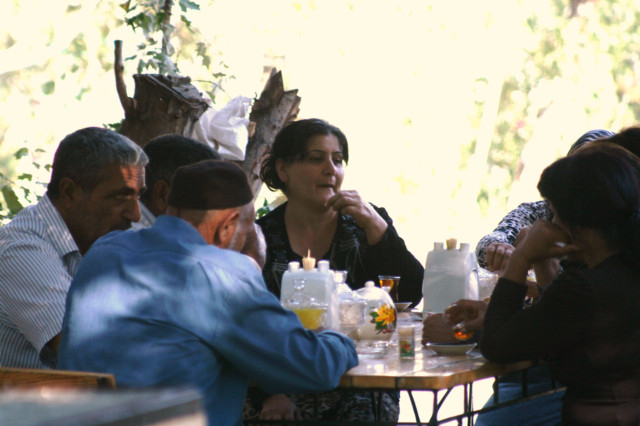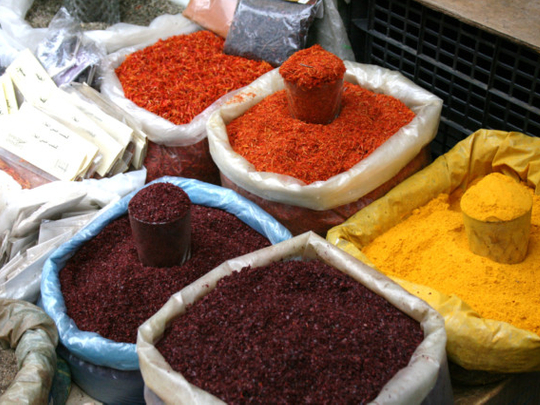
Mention Azerbaijan and you still get blank stares from many people as they try and figure out exactly where it is. However, that is all about to change as this oil-rich nation’s cuisine moves into the spotlight thanks to the World Travel Organisation.
A new nation, which only achieved independence from the old Soviet Union in 1991, Azerbaijan embraces the western coast of the Caspian Sea and extends inland covering an area slightly smaller than the UAE. What is attracting the public’s attention is the country’s unique food scene which has adventurous foodies exploring both to the country’s capital Baku as well as the smaller provinces which are still quite untouched by mass tourism.
WORLD RECOGNITION
The World Travel Organisation, which is funded by the United Nations, is so impressed with the cuisine in Azerbaijan that it recently organised a three-day conference to promote the country and its food as part of the Silk Road Programme. This initiative of the WTO aims to highlight the varied gastronomy of countries along the historic merchants’ road which joined Europe to Asia during the Middle Ages.
There are many factors which have made the gastronomy across the length and breadth of Azerbaijan noteworthy. Firstly, for a relatively small country there is an enormous variety of climatic zones and environments, ranging from sea to desert plains to dense mountain forests. This climatic variation expands the possibility for food cultivation enormously and ultimately provides a vast array of delights destined for the table. History has also played an important role and, over the millennia, the country has seen the gastronomic influence of many of its neighbours including Russia, Iran and Turkey adding to the spectrum of dishes.
Without doubt the country’s most luxurious and sought-after food is black Beluga caviar derived from the sturgeon which live in the Caspian Sea. While most of this “black gold” is exported, you’ll still find that high-end restaurants, such as the roof-top Kaspia in the Four Seasons Hotel, have a good supply. You may be in the country where it is produced, but don’t expect it to be cheap. Prices per gram are comparable with the rest of the world at around Dh790 per hundred grams.
BAKU - CAPITAL FOR FOOD
For those looking to sample some authentic Azeri cuisine, Baku, the nation’s capital, offers a number of historically unique venues which shouldn’t be missed. Encircled by a fortified wall, the entire historic centre was proclaimed a World Heritage Site by the United Nations in 1992. Inside the citadel, which dates back almost one thousand years, you’ll find amazing caravanserai — one of Baku’s links with the fabled Silk Road.
At the peak of its importance in the Middle Ages, weary merchants, along with their camels loaded with exotic spices, silks and other treasures, would spend the night in these simple accommodations. Each caravanserai is dominated by a central courtyard where the camels were kept, while the small, windowless cells surrounding it were set up with beds and eating facilities for the travellers. Today these well-preserved, and highly atmospheric spaces have been converted into restaurants allowing 21st-century guests a unique opportunity to experience a slice of Silk Road life while feasting on Azeri delicacies.
One of the best restaurants for atmosphere, service and food is Muğam caravanserai. What were once the stone-clad bedrooms for the traders are how small private dining rooms where you can laze about on locally woven carpets and soft cushions as you try a wide selection of traditional Azeri fare spread out on low, wooden tables. As in many Middle Eastern countries meals in Azerbaijan start with a wide selection of mezze — small dishes which can be shared with the other guests at the table. Although incredibly tasty you’ll need to pace yourself because there will be more food to come. Second courses are traditionally large platters of meat or fish.
Highlights at Muğam include the fragrant rice dish sabzi-govurma pilaf, which was quite likely enjoyed by the camel owners who passed through centuries ago. Rice is stewed with lamb, onions, coriander and the green leafy vegetable dock to make a hearty and flavoursome meal. Make sure you also try qovurma — a mouth-watering dish of melt-in-the-mouth lamb simmered with tomatoes, onions and saffron.
Uniting all meals and social occasions, tea drinking is a ritual all over the country, and you’ll find it a highly enjoyable social activity. Opportunities abound to sit with the locals with a tulip-shaped glass of this steamy beverage. Just as the Azeri love strong flavours in their food, so do they in their tea. To add sweetness and variety of tastes, black tea is liberally infused with quince, sweet cherry, peach, plum, strawberry, blackberry and grape jams. You’ll never be offered tea on its own, and there will always be a plate of Azeri sweets nearby. A national favourite, and one not to be missed, is pakhlava — an extremely sweet layered pastry filled with honey-soaked walnuts and almonds.
While Baku makes a relatively easy holiday destination with its superb five-star hotels, delightful restaurants and cafés and a decidedly cosmopolitan air, once outside this comfort zone, Azerbaijan is mostly uncharted territory for travellers and requires planning and patience. However, there is good news; no matter where you go there are always plenty of places to stop for a tea or, when hunger strikes, to enjoy a delightful meal prepared with pride and attention.
Refuelling en route will always be a satisfying experience. Food is consistently delicious and extremely good value. Azeri cuisine is impeccably fresh with key ingredients spiced up with fragrant local herbs, fruits and nuts and served in Brobdingnagian proportions.
SLOW FOOD CULTURE
There are myriad mezze to kick-off the meal and favourite ingredients are chick peas, aubergine, tomatoes and salty goat’s cheese. Yogurt dressings with lemon juice and mint add a tangy addition. Salads are liberally sprinkled with a bright red powder from the sumac berry to add colour and sweetness. Straight from tandoori-style ovens comes delicious hot, flat bread which is used to scoop up the tasty morsels. Following on are more substantial meat and fish dishes and a national favourite, pilaf rice, which might be flavoured with sultanas, pine nuts or vegetables. Some of the fare, such as the versions of hummus or kebabs, will seem familiar to those who have travelled through Turkey or counties in the Middle East, but each Azeri dish sports a subtle difference making it unique.
About 280km south of Baku, Lankaran is a pretty town bordering the Caspian Sea. For those want to relax by the water there is a black beach which you will most likely have to yourself except for a few local kids kicking a football around. Perfect for an overnight stay, the Xan Hotel provides quaint log cabin-style accommodation set around a lush, flower-filled garden. However, it’s the adjoining Khan Lankaran restaurant where they really pull out all the stops to make sure hungry travellers are well fed. The cuisine in this area is dominated by meat and vegetables flavoured with pomegranates and walnuts which give them a rich fruity taste.
Choose from Khan Lankaran’s main dining room or, if you prefer more privacy, book a private room which looks over the garden courtyard. Go with an appetite and use the experience to explore the many delights of the local Lankaran cuisine. Highlights from the menu are dushbara — chicken soup with dumplings and qutab — pancakes stuffed with spiced grilled lamb, white cheese and tender spinach.
About an hour’s drive north from Lankaran in the Talysh Mountains is Lerik. Nestled around a pretty square with plenty of teashops set under towering trees, this town and those in the surrounding area are famed for the longevity of many of its inhabitants. The most famous was Shirali Baba Muslimov, a local born in the nearby village of Barzavu, who is claimed to have died at the respectable age of 168.
Theories abound as to the reason for this phenomenon, and some say it’s due to the natural, unprocessed food which is free of toxins and preservatives eaten in the area. An important part of the diet is home-made yogurt which is consumed by the locals in large qualities on a daily basis. Try a bowl of dogva — a yogurt-based soup with sorrel, spinach and small, lamb meatballs.
In northern Azerbaijan around Säki you’ll find that the proximity to Russia has left its mark on what goes on in the kitchen. Cabbage and potatoes are widely used as are all types of grains. A popular dish in Säki is govurma-bozbash, a thick soup made with mutton, potatoes and roasted chestnuts. For those with a sweet-tooth, this area is where to sample some of the best pistachio halva in the country.
Across Azerbaijan time is still a commodity ready to be spent freely on many small pleasures. Over long meals, many pots of tea and plates of paklava you’ll glimpse the wonders that this small nation is eager to share with the world. If you’re a food aficionado with a sense of adventure, allow the people’s kind gentleness and good cooking to draw you in. Azerbaijan will surely leave you satisfied.
— Scott Adams is a writer based in Madrid
FACT FILE
Stay in Baku
Four Seasons - www.fourseasons.com/baku
Jumeirah - www.jumeirah.com
More information
www.azerbaijan24.com
www.exploreazerbaijan.com
www.tourism.az
www.silkroad.unwto.org


